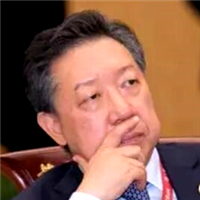
China’s achievement in landing a spacecraft on the far side of the moon, announced by Beijing’s state media this morning, has ramifications that go far beyond the simple statement of this being a “first” for mankind. It puts China on the map of international space exploration on a par with the existing space powers of the United States and Russia – the European Union to a lesser extent – but also adds a new dimension. It is the first time a landing has been attempted on the far side of the moon, with the particular communications challenges this entails, and it has been a success.
今天上午中国官方宣布,嫦娥四号探测器在月球背面成功着陆,其影响远远不仅是人类航天史上的一次突破这么简单。它将中国置于国际太空探索的版图之中,和现有的太空强国美国和俄罗斯(如果标准再降低一点的话,欧盟也算一个)并驾齐驱,并且开启了一个新的领域。在月球背面降落需要克服特定的通讯问题,中国成功地做到了这一点,实现了人类航天器在月球背面的首次着陆。
The first response from the US space agency, Nasa, was generous, as scientists to scientists: what China had managed was a “first for humanity and an impressive accomplishment”. The response in political and military quarters in Washington, as in Moscow, however, is likely to reflect trepidation. There is now a serious newcomer to be considered.
首先对此作出回应的是美国航天局(NASA),其风格是科学家对科学家式的,不吝赞美之辞,称中国的成就是“令人钦佩的科学突破”。然而,美国和俄罗斯的政治和军事机构的回应似乎反映出不安的情绪。在太空竞赛领域,他们迎来了一个实力强劲的新对手。
China was late into space, sending its first astronaut into orbit in 2003 – 40 years after the Soviet Union and the US were embarking on their space race. Now Beijing has done something neither of the other two space powers has done – that may well be because they had other priorities for their space programmes, such as manned flight, human survival in space and the fascination with distant planets, first of all Mars. After Neil Armstrong became the first human to walk on the moon – a US triumph that provided some consolation for the shock that a Russian, Yuri Gagarin, became the first man to go into space – there was a sense that the moon had been “done”. Greater challenges awaited. Will that change now, and could the moon become a potentially contested territory?
中国进入太空领域较晚,2003年才第一次将宇航员送入轨道,比美苏开启太空争霸晚了40年,而现在,中国已经做到了这两个国家都没有做到过的事情。当然,这在很大程度上是因为美俄目前的太空计划中有其他的优先项目,像载人飞行、太空生存和对其他行星,尤其是火星的探索等等。俄罗斯人尤里·加加林成为进入太空第一人给美国带来了冲击,尼尔·阿姆斯特朗首次登月则让美国人得到了些许安慰。从那以后,人们似乎就觉得对月球的探索已经“大功告成”,应该去迎接更大的挑战了。这种想法现在会不会发生变化?月球会不会重新成为太空竞赛的焦点?
At a popular level, space has not lost its power to fascinate. The proximity of the moon and the mystery of its far side guarantee that China’s latest mission will command global attention beyond the scientific space fraternity. It will enhance China’s international standing, and could well inspire an interest in China and space among young people, as the US-Russia space race once did.
公众从来都没有失去对太空探索的兴趣。中国这次行动就因为月球的近地性以及月球背面的神秘性而赢得了全球大众,而不仅仅是太空科学界的关注。这次成功将提升中国的国际地位,并且可以充分地激发年轻人对中国和太空的兴趣,正如美俄的太空竞赛曾形成的影响一样。
The mix of admiration and anxiety that accompanied early Soviet space successes helped prompt the government of the then UK prime minister Harold Wilson to encourage (and fund) Russian teaching in the country’s schools and universities – and is one reason why I, and other Britons of my generation, had the opportunity to study Russian. Today the challenge, the excitement, and to some the perceived threat comes from a rising China – and now not just on planet Earth.
苏联早期的太空成功让西方国家既钦佩又焦虑,促使英国首相哈罗德·威尔逊鼓励(并资助)了中小学及大学中的俄语教学。正因如此,我和我们这一代英国人才有机会学习俄语。今天,崛起的中国所带来的挑战和兴奋——以及一些人所感觉到的威胁——已经不再仅仅局限在地球上了。
An open question is how far China will be welcomed – or not – into the existing space “club”. After the no-holds-barred space rivalry of the US and the Soviet Union that constituted a part of the cold war, the US and Russia have settled into a more collaborative relationship in space that has largely withstood the worst of diplomatic tensions. The US suspended its space shuttle programme in 2011, but it has continued to send astronauts into space using Russian rockets, and the International Space Station has remained in use as a shared venture. Diplomatic expulsions, accusations of election interference and terrestrial disputes most recently over Ukraine and Syria have not affected cooperation in pursuit of national scientific and security interests in space. Space has remained a sanctions-free zone.
有一个问题现在还没有答案,那就是中国是否——或者能在多大程度上——得到现有的太空“俱乐部”的欢迎。当年美苏之间的太空竞赛呈现出完全的敌对状态,甚至构成了冷战的一部分。冷战结束之后,美国和俄罗斯在太空中建立了一种更具协作性的关系,而且这种关系在两国外交形势最紧张的时期也基本经受住了考验。美国于2011年终止了航天飞机计划,但它持续使用俄罗斯的火箭将宇航员送入太空。国际空间站也仍作为共享资源使用。最近,美俄两国因为乌克兰和叙利亚的干涉选举问题和领土争端问题而互相驱逐外交人员,但这并未影响国家间在太空科学和安全利益方面的合作。太空仍然是一个不存在国际制裁的领域。
It has taken more than half a century for US-Russia space cooperation to reach this point of relative equanimity, but the arrival of China as a serious player – graphically illustrated by its latest success – has the potential to disturb this. Will Russia, for instance, see China, with its recent successes and innovations, as a future partner in space or a deadly rival? The US – through its long-Sinophobic Congress – seems already to have made up its mind. Not only is it increasingly treating China as an economic and military competitor, but President Donald Trump recently ordered the creation of a new Space Command for the US armed services, suggesting the direction of his thinking here, too.
美俄之间用了半个多世纪才在太空中形成了较为和谐的合作关系,但中国这一强劲挑战者——最近的这次月球背面着陆生动地展现了中国的实力——的出现却有可能打破这一平衡。例如,中国最近的成功和创新会让俄罗斯怎么看?是把中国视为未来的太空伙伴,还是致命的竞争对手?在这个问题上,长期持“中国威胁论”观点的美国国会似乎已经为美国给出了答案。美国越来越将中国视为经济和军事上的竞争对手,特朗普总统最近还下令为美国武装部队建立一个新的太空司令部,这也暗示了他在这个问题上的态度。
So far, China’s precise ambitions for its space programme remain unclear. Establishing itself as a space power is surely one – but is it as a space power, or the space power? The equipment it has now sent to the moon suggests that communications and new natural resources are priorities. How far will the US, in particular, be prepared to watch and wait while Beijing potentially races ahead in these sensitive areas? Stand by for the US and Russia to take a new interest in the moon.
到目前为止,中国在太空领域的准确目标仍不明朗——让自己成为太空强国是一定的,但是是“之一”还是“唯一”?中国这次送到月球的设备表明,其首要目标是解决通讯问题,并寻找新的自然资源。看着中国在这样敏感的领域的暗战中领先,其他国家——特别是美国——准备袖手旁观到什么时候?看着吧,美国和俄罗斯很可能会重新对月球产生兴趣。






